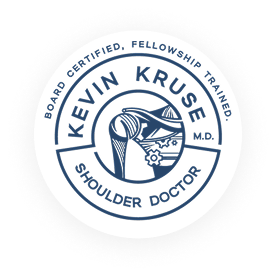When it comes to maintaining an active and pain-free lifestyle, the health of your shoulders cannot be overstated. In Plano, where life is dynamic and bustling, an increasing number of individuals are facing shoulder-related challenges. This calls for a spotlight on the crucial role of a shoulder specialist, particularly a proficient Plano shoulder surgeon.
Who is a Shoulder Surgeon?
A shoulder surgeon is a medical professional who specializes in diagnosing, treating, and managing issues related to the shoulder. This includes injuries, arthritis, and other conditions that can impair movement, cause pain, or decrease the strength in your shoulder.
Common Shoulder Problems
Overview of Shoulder Issues
The shoulder, being one of the most mobile joints in the body, is susceptible to various issues. This section discusses common problems that lead individuals to seek the expertise of a shoulder doctor.
Shoulder Arthritis
Shoulder arthritis is a condition characterized by the deterioration of the cartilage in the shoulder joint. It can lead to stiffness, pain, and a reduced range of motion.
Rotator Cuff Injuries
The rotator cuff, a crucial part of the shoulder, is prone to injuries such as tears and inflammation. These injuries can drastically affect one’s ability to perform daily activities.
The role of a shoulder specialist extends beyond treatment. Proper diagnosis is critical and involves a combination of physical examinations, medical history analysis, and advanced imaging techniques.
Treatment Options Offered by a Plano Shoulder Doctor
Non-surgical Methods
Not all shoulder issues necessitate surgery. Many conditions can be effectively managed through physical therapy, medications, and lifestyle adjustments.
Surgical Interventions
For cases where surgery is the best option, shoulder surgeons offer various procedures. This section delves into the most common surgical interventions.
1. Arthroscopy
A minimally invasive technique used to diagnose and treat joint problems, offering quicker recovery times and less postoperative discomfort.
2. Shoulder Replacement
In severe cases, especially with advanced shoulder arthritis, shoulder replacement might be the recommended course of action.
Post-Surgery Recovery
Post-surgery care is crucial for a successful outcome. This section discusses the recovery process, including the importance of rehabilitation and physiotherapy.
Choosing the Right Shoulder Doctor in Plano
Selecting the right shoulder doctor is paramount. This section offers guidance on what to consider, emphasizing the importance of qualifications, experience, and patient testimonials.
The Role of Technology in Shoulder Surgery
Technological advancements have revolutionized shoulder surgeries, making procedures more precise and recovery faster. This section explores these innovations and their benefits.
Preventing Shoulder Problems
Prevention is always better than cure. This section provides valuable tips from shoulder specialists on maintaining shoulder health, emphasizing exercise and posture.
Choosing a skilled and experienced shoulder surgeon in Plano is crucial for addressing your shoulder issues effectively. With the right care, you can expect to regain functionality and enjoy a pain-free life.
Dr Kruse’s Plano Location
FAQs
- What symptoms indicate the need to see a shoulder specialist?
- You should consider seeing a shoulder specialist if you experience persistent pain, swelling, or stiffness in your shoulder, decreased range of motion, weakness in the arm, or if you have sustained an injury and your shoulder is not improving with basic home care.
- How do I know if I need shoulder surgery?
- Surgery may be necessary if you have a severe injury (like a rotator cuff tear), if your shoulder condition (such as arthritis) is progressively getting worse, or if conservative treatments like medications or physical therapy haven’t relieved your pain or improved function.
- What is the recovery time for common shoulder surgeries?
- Recovery time varies depending on the type of surgery. For minor procedures like arthroscopy, you might recover within a few weeks, but for more extensive surgeries like a shoulder replacement, full recovery can take several months. It’s important to follow your surgeon’s post-operative care plan.
- How can I prevent shoulder injuries?
- To prevent shoulder injuries, maintain good physical fitness and shoulder strength, practice proper techniques when lifting or performing repetitive motions, warm up before engaging in sports, and ensure you’re using ergonomic setups at your workstation.
- Are there any risks associated with shoulder surgery?
- As with any surgery, there are risks including infection, bleeding, pain, and the potential for complications related to anesthesia. Specific to shoulder surgery, there’s also a risk of joint stiffness or failure of the repaired tissues to heal properly.
- What are the latest advancements in shoulder surgery?
- Recent advancements include minimally invasive arthroscopic surgeries, improved prosthetic joint components for shoulder replacements, and techniques like superior capsular reconstruction for massive rotator cuff tears. Computer-aided surgery and better pain management techniques have also improved outcomes.
- How often should I follow up with my shoulder surgeon after surgery?
- Follow-up schedules vary based on the type of surgery and individual patient needs. Generally, you’ll have appointments a few weeks after surgery, then periodically over the next several months to monitor your recovery and rehabilitation progress.
- Can shoulder surgery fully restore my shoulder function?
- While surgery aims to restore as much function as possible, the outcome can depend on several factors including the type and severity of the condition, the specific procedure performed, and your adherence to rehabilitation. Some patients may experience a complete restoration, while others might have some limitations.
- What are the non-surgical treatment options for shoulder pain?
- Non-surgical treatments include rest, ice, compression, and elevation (RICE), physical therapy, medications like pain relievers and anti-inflammatories, corticosteroid injections, and lifestyle modifications such as activity changes and ergonomic improvements.
- How does a shoulder surgeon diagnose shoulder arthritis?
- A shoulder surgeon diagnoses arthritis based on your symptoms, a physical examination, and imaging tests like X-rays, which can show joint space narrowing, bone spurs, and other changes associated with arthritis. MRI or ultrasound might be used for a more detailed assessment.

